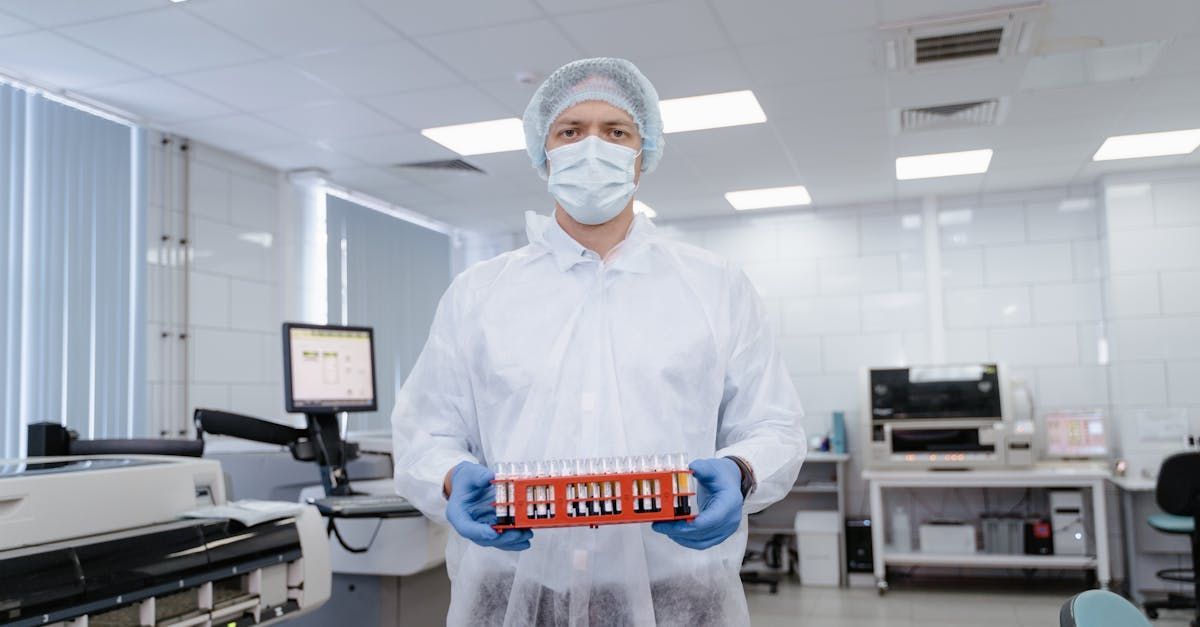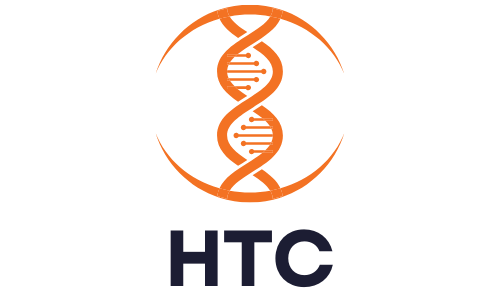HealthTech for Rare Diseases: Investment Opportunities
Rare diseases, though individually uncommon, collectively affect a significant portion of the global population. Defined by their low prevalence, these conditions often present substantial challenges for diagnosis and treatment. Traditional healthcare systems and pharmaceutical industries have historically underserved rare diseases due to the limited market and high research and development costs. However, HealthTech innovations are poised to transform this landscape, offering new hope for patients and presenting lucrative investment opportunities. This blog explores the potential of HealthTech in addressing rare diseases and highlights key investment prospects.
Rare diseases, often referred to as orphan diseases, affect a small percentage of the population. In the United States, a disease is classified as rare if it affects fewer than 200,000 people. Despite their rarity, there are over 7,000 known rare diseases, collectively impacting over 300 million people worldwide. These conditions are frequently chronic, progressive, and life-threatening, posing severe burdens on patients and healthcare systems.
The primary challenge in managing rare diseases lies in their diagnosis and treatment. Due to the limited number of cases, healthcare providers often lack the experience and resources necessary for accurate and timely diagnosis. Many patients undergo a prolonged diagnostic odyssey, often receiving multiple incorrect diagnoses before the correct one is identified. Additionally, treatment options are scarce, with only about 5% of rare diseases having an FDA-approved treatment.
HealthTech Solutions for Rare Diseases
HealthTech innovations are revolutionizing the approach to diagnosing and treating rare diseases. Key technologies include genetic testing, telemedicine, and artificial intelligence (AI), all of which contribute to improved care for rare disease patients.
Genetic testing has become a cornerstone of rare disease diagnosis. Many rare diseases have a genetic basis, and advancements in next-generation sequencing (NGS) have made it possible to identify genetic mutations quickly and accurately. Companies like Invitae and Illumina are leading the way in providing comprehensive genetic testing services, enabling early and precise diagnosis.
Telemedicine offers significant advantages for rare disease patients, who often live far from specialized healthcare centers. Virtual consultations allow patients to access expert care without the need for extensive travel. This technology has proven especially valuable during the COVID-19 pandemic, which restricted access to in-person healthcare services. Platforms like Teladoc and Amwell are expanding their services to include rare disease consultations, making specialist care more accessible.
AI and machine learning are also playing a crucial role in rare disease management. These technologies can analyze vast amounts of data to identify patterns and predict disease progression. AI-driven diagnostic tools, such as those developed by Ada Health and IBM Watson, help healthcare providers make more accurate diagnoses and develop personalized treatment plans.
Personalized Medicine for Rare Diseases
Personalized medicine, which tailors treatment to an individual's genetic makeup, is particularly effective for rare diseases. This approach considers the unique genetic, environmental, and lifestyle factors of each patient, leading to more effective and targeted therapies.
One notable example is the use of gene therapy for treating rare genetic disorders. Gene therapy involves altering the patient's genetic code to correct the underlying cause of the disease. Companies like Spark Therapeutics and Bluebird Bio have made significant strides in developing gene therapies for conditions such as spinal muscular atrophy (SMA) and beta-thalassemia. These treatments have shown remarkable success, significantly improving patient outcomes and quality of life.
Another promising area is the development of personalized drug therapies. For instance, Vertex Pharmaceuticals has developed cystic fibrosis (CF) treatments tailored to specific genetic mutations. These therapies have transformed the lives of many CF patients, who previously had limited treatment options.
The Role of Data and Analytics
Data and analytics are critical in advancing rare disease research and care. The ability to collect, analyze, and share data on rare diseases can lead to better understanding, diagnosis, and treatment.
Registries and databases play a vital role in this effort. They compile patient data from various sources, providing researchers with valuable insights into disease prevalence, progression, and treatment efficacy. The Global Rare Diseases Registry and Data Repository (GRDR) is one such initiative, aiming to aggregate data on rare diseases to support research and improve patient outcomes.
Predictive analytics, powered by AI, is another powerful tool. By analyzing historical and real-time data, predictive models can forecast disease progression and response to treatment. This information is invaluable for clinicians in making informed treatment decisions. For example, the company Tempus uses AI-driven analytics to personalize cancer treatment, and similar approaches are being explored for rare diseases.
Regulatory and Market Challenges
Despite the potential of HealthTech to revolutionize rare disease care, several challenges remain. Regulatory and compliance hurdles are significant barriers. Rare disease treatments often face lengthy and costly approval processes, as regulatory agencies require extensive evidence of safety and efficacy. The Orphan Drug Act in the United States and similar legislation in other countries provide incentives for developing treatments for rare diseases, but navigating the regulatory landscape remains complex.
Market challenges also exist. The small patient populations for rare diseases limit the financial viability of developing new treatments. High research and development costs, coupled with uncertain market returns, can deter investment. However, innovative business models and strategic partnerships can mitigate these risks.
Investment Strategies in Rare Disease HealthTech
Investing in HealthTech solutions for rare diseases requires careful consideration of various factors. Identifying promising companies and technologies is the first step. Investors should look for firms with strong research pipelines, experienced management teams, and a track record of innovation. Long-term investment strategies are often more appropriate for this field, given the lengthy development and approval timelines for new treatments. However, short-term opportunities may arise from partnerships, acquisitions, or regulatory approvals. Investors should also consider the broader impact of their investments. Supporting companies that are committed to improving patient outcomes and advancing scientific knowledge can yield significant social and financial returns.
Notable Labs is Leading the Charge in Rare Disease HealthTech
Notable Labs stands at the forefront of HealthTech innovation, particularly in the realm of rare diseases. Their advanced genetic and molecular analyses are not just pushing the boundaries of science but are fundamentally transforming how rare diseases are diagnosed and treated. This focus on precision medicine allows for the development of personalized treatment approaches, tailored specifically to the unique genetic makeup of each patient. By doing so, Notable Labs is setting new standards in patient care, offering hope and improved outcomes for those affected by conditions that have long been neglected by mainstream medical research.
A significant part of Notable Labs' strategy involves robust collaboration with insurers and healthcare providers. This collaboration ensures that the groundbreaking treatments developed through precision medicine are not only accessible but also affordable. The integration of advanced HealthTech solutions into standard healthcare coverage is a testament to Notable Labs' commitment to making precision medicine a norm rather than an exception. This approach not only enhances patient care but also supports the development of reimbursement policies that acknowledge the value and cost-effectiveness of precision medicine. This strategic alignment with the financial and operational aspects of healthcare systems is crucial in driving widespread adoption and implementation.
Notable Labs' work in the field of rare diseases highlights the immense potential of HealthTech investments. Investors looking for opportunities that combine significant financial returns with profound social impact will find a compelling case in Notable Labs. The company's commitment to evidence-based practices and robust clinical data underpins their innovative approaches, ensuring that each patient receives the most effective and individualized treatment possible. This focus on personalized healthcare is not just a trend; it is a sustainable model for the future of medicine.
Furthermore, Notable Labs' efforts underscore the broader impact that HealthTech innovations can have on global health. By addressing the unique challenges posed by rare diseases, they are setting a new standard for integrating cutting-edge medical advancements into everyday healthcare. This work is critical in paving the way for a future where personalized healthcare is the norm, and each patient receives treatments that are specifically designed to meet their unique needs.
In conclusion, Notable Labs exemplifies the transformative potential of HealthTech in the realm of rare diseases. Their pioneering work offers substantial investment opportunities for those committed to advancing global health. By leading the charge in integrating precision medicine into healthcare systems, Notable Labs is not only improving patient outcomes but also setting a new benchmark for what is possible in the treatment and management of rare diseases. Their innovative approaches and commitment to accessible, affordable healthcare make them a beacon of progress in the HealthTech industry, providing a model for how advanced technologies can be harnessed to address some of the most challenging medical conditions of our time.
Future Trends and Innovations
The future of HealthTech for rare diseases is bright, with several emerging trends and innovations on the horizon. Advances in gene editing technologies, such as CRISPR, hold promise for correcting genetic mutations at their source. This approach has the potential to cure genetic disorders rather than merely managing symptoms. AI and machine learning will continue to play a crucial role in rare disease research and care. Improved algorithms and data integration will enhance diagnostic accuracy and treatment personalization. Collaboration is another key trend. Partnerships between biotech companies, academic institutions, and patient advocacy groups can accelerate research and development. The success of initiatives like the Rare Disease Clinical Research Network (RDCRN) demonstrates the power of collaboration in advancing rare disease research.
Conclusion
HealthTech innovations are transforming the landscape of rare disease care, offering new hope for patients and significant investment opportunities. By leveraging genetic testing, telemedicine, AI, and personalized medicine, HealthTech companies are addressing the unique challenges of rare diseases and improving patient outcomes.
Investors have a crucial role to play in supporting these innovations. By investing in promising HealthTech companies and technologies, they can help advance scientific knowledge, improve patient care, and achieve substantial financial returns.
As we look to the future, continued investment and innovation in HealthTech will be essential for addressing the unmet needs of rare disease patients. With the right strategies and partnerships, we can create a future where rare diseases are not only treatable but curable, improving the lives of millions of people worldwide.










